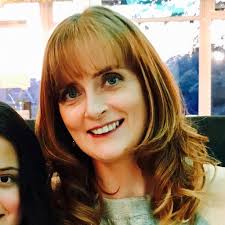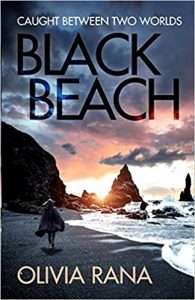Don’t Judge A Book By Its Title
 Almost ten years ago I attended a workshop in Belfast aimed at giving writers an insight into the mysterious world of publishing. We writers sat expectantly, hoping to unearth some magic formula to having our book published, daring to hope that we might even get the opportunity to pitch our book to those from the inner sanctum.
Almost ten years ago I attended a workshop in Belfast aimed at giving writers an insight into the mysterious world of publishing. We writers sat expectantly, hoping to unearth some magic formula to having our book published, daring to hope that we might even get the opportunity to pitch our book to those from the inner sanctum.
Having just completed my first novel I was in the process of sending it out to agents and was well aware that getting noticed was near to impossible. The months of redrafting and polishing my work was complete and what I needed now was some sage advice on how to grab the agents attention in my covering letter, or perhaps some tips on how to better structure my synopsis. Surely that was all I needed to get my foot in the door?
My naive optimism started to dwindle as the published writers took to the stage and told their stories – dozens of rejections, rewrites, failed novels. They were brutally honest about the difficulties in getting published and made no bones about the fact that even when you do get a publishing contract it’s not all sunshine and roses. One writer told how after years of trying to get her book out into the world she landed a contract with a major publishing house. Her initial joy was diminished by the reality that over the following weeks she was sent sixteen pages of required changes and asked to swap the title of her book, something that almost sent her over the brink of despair.
Their journeys fascinated me, and one thing was unmistakable – in all cases perseverance had been critical to their success. Despite the reality check, their words emboldened me, made me more determined to continue and to find that writers grit. I had given up a career in project management to pursue a Masters in creative writing, and I’d finished my thesis while pregnant with my second child. I was not going to give up.
When the publisher, an indistinct middle-aged man in a beige cardigan took to the stage, I straightened myself in my seat. I was full of verve, ready to take onboard whatever he had to say. He was the man who understood the formulae for making it, who had the power to launch a writing career.
He began his speech talking about the importance of book titles and how the title of a book could merely put him off from reading the first page of a manuscript. I found this a little dismissive – surely a name could be changed, just as the previous speaker had asserted to? ‘Whatever you do, don’t use a title with the word Girl in it,’ he grimaced, like that was possibly the most shameful thing a writer could do.
I sunk back down into my chair, felt my face begin to burn and imagined everyone sniggering at me. My book was called Elastic Girl, and according to this publisher, Girl was overused and outdated. It was a complete no-go. I had already sent my novel to several agents and began to panic, thinking that was it, I’d lost my opportunity all because of my foolish reference to the female child.
Deflated, I went home and ruminated on what he had said. I ran searches on Goodreads to try and gauge how many books there were with that ominous word in the title. Yes, there were hundreds! How could I have got it so wrong? When I began to get rejections I was positive that said publisher had been correct in his assertions. Maybe it wasn’t too late? I could still change it.
For days I tore my hair out trying to come up with an alternative title. Elastic Girl was based on my main character, a young girl who was sold into the Indian circus as a contortionist. Her stage name was Elastic Girl and this was her story, so nothing else seemed to fit. Changing the title felt like I would be moving away from the heart of the story, shifting the focus. With my writer’s grit I decided to stay loyal to Elastic Girl, still wondering if that decision would be to the determent of the books success.
In the end I self published my novel. You receive very little in the way of feedback from publishers, but there was no mention of my title, of my foolish use of Girl. On the whole it seemed to be that my story wasn’t commercial enough, that it was perhaps too melancholy. Who after all wants to read about a young girl who is tragically sold into a circus? Surely there wasn’t a market for such stories of despair, for exploring the strength of the female spirit in overcoming the most difficult of circumstances? In fact there was a readership for such stories, and Elastic Girl found its own way in the world, telling a story that needed to be told.
Since then, with the Me Too movement and the assertion of equal rights for females, there has been an avalanche of books and stories about female oppression and the struggle for justice and equality. Maybe with Elastic Girl it was simply a case of wrong time and wrong place. Had it been five years later I may have landed on a publisher’s desk just when they were looking for that kind of book.
Timing, topic, and world events – these are the things that lend themselves to whether a book gets lucky. A good publisher I’m sure would not judge a book by its title. If that were the case we would never have had the joy of reading some of the most influential and best selling books of the past few years – Girl, Woman, Other by Bernardine Evaristo, Girl by Edna O’Brien, The Girl on the Train by Paula Hawkins or The Girl with the Louding Voice by Abi Dare.
On a whim one day I looked up all the books with the word Boy in the title, and there wasn’t much between them. In fact I have on my own bookshelves as many books with Boy in the title, including two of my favourites, The Boy in the Striped Pajamas and A Suitable Boy. I wondered if the cardiganed publisher had regretted his words that day, his dismissal of Girl as a respected and enduring title? Perhaps he had just been overrun with a plethora of submissions on female-esque titled books, or perhaps it was something more fundamental, around his own insecurities and prejudices. Whatever it was, he was the one who missed a trick that day.
—
Elastic Girl and Rana’s latest book Black Beach are both available to buy on Amazon.
Black Beach is available now on Amazon.
—
Olivia Rana has a Masters of Art in Creative Writing from Queen’s University, Belfast. Her debut novel, Elastic Girl was published in November 2017 and was awarded fiction winner in the prestigious 2019 Indie Reader Discovery Awards.
Rana’s second novel Black Beach is set in Iceland and explores the phenomena of the Huldufólk, or Hidden People, through the eyes of a psychic named Fríða Jónsdóttir. Fríða has been a friend of the Huldufólk all her life, living between two worlds. Now at age seventy-five she is given her greatest challenge ever, to save the lives of the Huldufólk on Black Beach, but she must overcome her own frailties and the disbelief of those around her in order to do so. In an extraordinary turn of events, it is her daughter Alda who comes to her help, proving the strength and tenacity of the mother/daughter relationship.
Both Elastic Girl and Rana’s second novel, Black Beach received an award through the Arts Council for Northern Ireland under their Support for Individual Artists Programme.
Olivia Rana lives in Belfast with her husband and two young children. She is currently working on her third novel.
–Follow Olivia on Twitter https://twitter.com/Oliviarana2
BLACK BEACH
 Alda, a logically minded seismologist has always been sceptical of her mother Fríða’s belief in the strange Icelandic phenomena known as Huldufólk (Hidden People). But when the aging Fríða mysteriously disappears from her nursing home and sets off across country to save the Huldufólk from a threat to their homes, it is the start of an extraordinary journey for both women.
Alda, a logically minded seismologist has always been sceptical of her mother Fríða’s belief in the strange Icelandic phenomena known as Huldufólk (Hidden People). But when the aging Fríða mysteriously disappears from her nursing home and sets off across country to save the Huldufólk from a threat to their homes, it is the start of an extraordinary journey for both women.
Alda confronts her own demons and Fríða finally helps to uncover the truth of the mysterious events that led up to the death of her father six decades earlier. Through their journeys, and an imminent disaster on Black Beach, the two women come together with a more profound understanding of each other and themselves, proving the resilience and tenacity of the mother/daughter relationship against all odds.
Black Beach was informed in part by renowned Huldufólk seer and environmentalist Ragnhildur Jónsdóttir. Ragnhildur has given her full endorsement of the book – “This is the first time ever I have read a story about connection between the worlds, so real, so alive and so true. I love how it brings together the world of the “know it all” and the world of those who are always questioned, not believed and ridiculed. What a treat to read this story.” Ragnhildur is the subject of current award winning realist documentary The Seer and the Unseen, directed by Sara Dosa.
Category: On Writing























